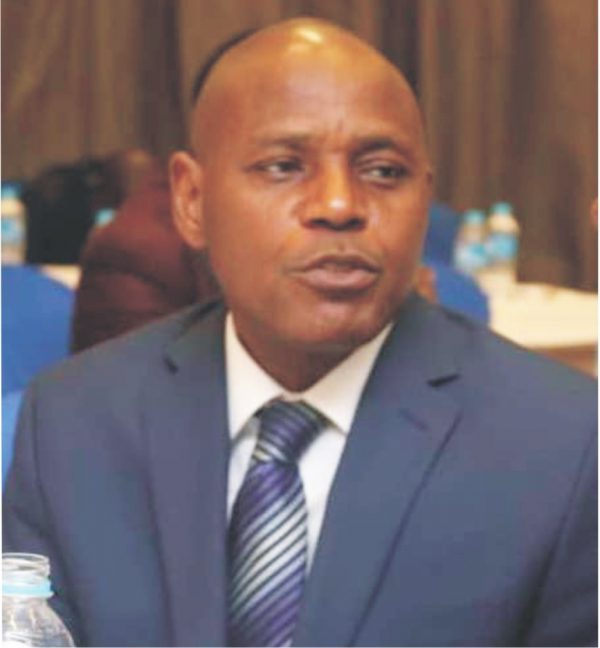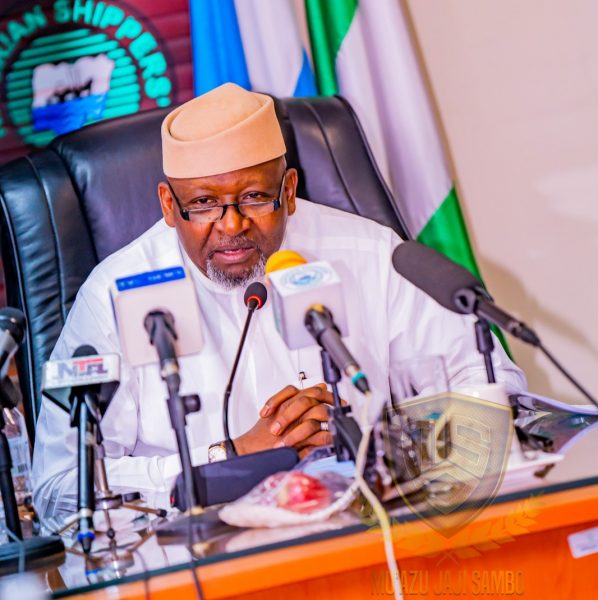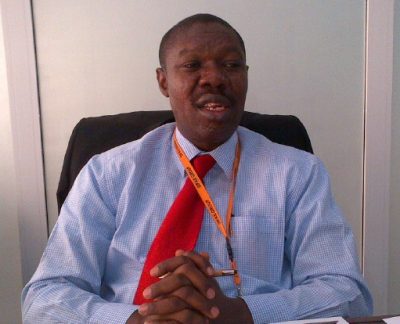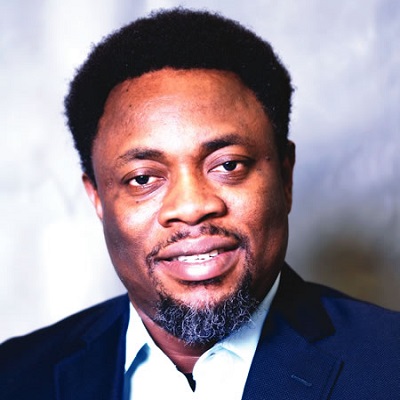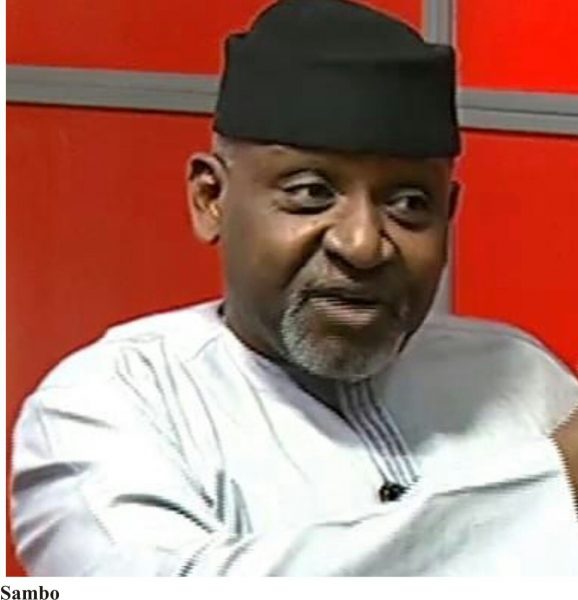I CARE INTERVIEW
How FG Can Bring Back Shippers And Trawlers From Cotonou
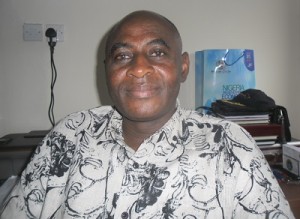
Navy Capt. Abel Ogah (rtd), has put in 31 years of quality service with the Nigerian Navy before retiring in 2014, he was later recalled and employed by the force to facilitate the training of personnel in the Seaman Professional School particularly, the Information and Communication Technology (ICT) school, he is also the Director, Haulers and Sea Limited. In this exclusive interview with Ifeoma Oguamaman of MMS Plus, he explains about the standards expected in the maritime industry and the shortfalls therein.
Read on:
How does the Navy ensure safety of ashore and afloat Vessels?
We have our technical team, called the fleet support group, we have our dockyard that is where our ships are repaired, serviced and maintenance carried out, and part of the training given to personnel is on how to manage cases of damage to ship, at the Nigerian navy engineering college in Sapele.
That is where the engineers are trained on how to ensure that ships remain floating and in case of damage, they know what to do, in severe cases they take it to the dockyard, that is our ship repair base or the ship yard in port Harcourt.
In various locations we have what we call fleet support unit for immediate attention to ships, to ensure that ships remain operational and afloat.
How is the standard of maritime safety practice and regulations maintained in Nigeria?
To the highest expectation, if you don’t maintain standard it will show in the environment, definitely the environment must be kept clean, pollution is avoided and personnel are well trained in security because where ships are there could be saboteurs that could come and try to create damages to ships.
So, it is definitely paramount that the environment is maintained in terms of cleanliness to make sure that unwanted material do not get into the ship, or damage the ship side, even the bottom of the ship side, the environment where these ships are kept or berth even in the naval base here is well dressed so that the ships will not touch bottom but kept floating.
What are the regulations and policies guiding the activities of the Nigerian Navy?
We have the Nigerian Navy act and the Arm Forces Act, it contains all the regulations on the mission and vision of the Nigerian navy, it ensures that at all time these statutory stipulations as spelt out in the Nigerian constitution are fully implanted.
Recently Mercury Oil Company sued the Nigerian Navy. What do you have to say about this?
I think that is the responsibility of the intelligence and the police department, they handle that aspect. Definitely one of the constitutional roles of the Nigerian Navy is to arrest ships and to ensure that illegal activities on our waters are not encouraged.
When they go to patrol at sea and they see any ship that does not have the right permit to be there they have the right to arrest it, it is in the constitution.
What they do is that when they see a ship at sea, they communicate to the captain to find out why it is there, they ask for the permit of the vessel and ask what it is doing in our territorial waters and they have every right to ask, so if they arrested a ship it is part of their constitutional responsibilities.
The overlapping functions of the Navy and the Nigerian Maritime Administration and Safety Agency (NIMASA), has it helped in achieving safety and security in our territorial waters?
The synergy has worked effectively because NIMASA like the name implies, is for safety and administration while Navy is more of security, so the interrelation is that when the government makes the policies one or more authorities has to implement it.
The responsibility of NIMASA is safety and there is a difference between safety and security even though there is a thin line between the two, since they are linked, they are for safety and we are for security, we police to ensure that illegal activities do not take place in our waters and that is why we carry out patrol.
What are the measures being put in place to check sea robbery by Navy as most our Nigerian trawlers have moved to Cotonou as a result of the fear of sea robbery attacks?
That is the essence of the patrol I talked about earlier, from time to time our ships, especially from the operational base at Beecroft go to sea to make sure that illegal activities are not being carried out there, when they see people carrying out illegal activities they are mandated to arrest them.
Sometimes there are internal issues between the trawlers and government agencies. It is also possible that since Nigeria has a large coastal area to cover, the Navy might not be readily available at the time when these trawlers are conducting their legitimate businesses.
Information is shared globally, so if a ship is going to sea even people who vandalize ships are aware that it is at sea and if the Navy is not close by, they could carry out hit and run operation on that vessel and because Nigeria has a very large maritime area, you discover that it is difficult for the Nigerian Navy alone to cover the whole maritime environment.
Some of the issues are isolated cases, not that it is a continuous issue but the maritime environment is so large that the Nigerian Navy cannot be there 24/7, the security ships are not enough to cover the maritime environment, even though we have some and we are still acquiring more, there is still a kind of loop hole because at that time when the Navy is not at sea, those who monitor the activities at sea know that at this particular time the Navy is not at sea and if there is any ship at sea at that time that ship is vulnerable to attack from sea robbers.
If the Nigerian navy has the capability to be at sea 24/7, the activities of sea robbery will be checked adequately for the trawlers to return.
So what can the government do to equip the Navy adequately to surmount the challenges of security of our territorial waters?
Right now we have Regional Maritime Awareness Capability Systems (RMACS), installed in our various coastal areas where we have cameras and radars to monitor vessels operating in our sea, there is an upstream system where these vessels can be observed from.
Navy also have the automatic identification system that allows for interrogating a vessel at sea, to know where they are coming from, so it is not completely all that porous, but the maritime environment is very large and the Nigeria Navy cannot be at sea 24/7, once in a while some ships will come in but there is no ship that will enter into our maritime environment that will not be detected.
What can be done to check this lapse?
The government should fund the Nigeria Navy adequately, as our surveillance facilities are not installed to cover the whole maritime environment because the length of the Nigerian territorial coast is about 84 nautical miles and that translates into a very large space. The Navy cannot patrol the whole of the Nigerian maritime coast, it is a very difficult task and if they are to patrol it, that means that they will require more tug boats, ships and more personnel.
Recently more ships has been acquired by the Nigerian Navy to try and fill the gap and in the area of ICT, security surveillance facilities have been expanded to extend from Apapa to Badagry there is another one in Focados and Bonny and other locations.
There are 7 designated areas in all, this ensures that there is early information about vessels that are operating in our waters but there is still a lot of shadow zone within these areas and until there is a complete coverage to take care of that area the security system remains flawed.
Can you explain some of the processes of the security strategy of the Navy?
When a vessel is picked at sea, first and foremost, it shows on the screen of the camera and radar, with the radio the ship is communicated with, when the ship identifies itself, in most cases any ship coming to our territorial waters must have sent pre-information stating Nigeria as its port of destination before its arrival, to the Nigerian Navy, NIMASA and all the relevant security agencies that operate in our waters.
So, when a ship has no record with the Navy they can dispatch a patrol boat to intercept that vessel.
The ban on 133 foreign ship owners from operating in our waters, is it a welcome development?
The Cabotage Act, even though we are not responsible for its implementation, NIMASA is responsible, is supposed to provide local content for our ship owners but because Nigerians do not have adequate vessels to compete with the foreign vessels some of them use the services of foreign ships to carry out their business.
However, you discover that rather than using the vessels belonging to Nigerians most companies requiring shipping services prefer to go outside and hire these foreign ships thereby defeating the essence of the Cabotage Act, which states that local content should be given priority by providing for indigenous participation in the maritime trade.
.What Nigerian ships do is that when bigger vessels come from far countries the vessels remain at sea while Nigerians use their smaller vessels to get to them and bring the products to our shore, and also carry out services or whatever the foreign vessels might require, but that depends on the availability and the numbers of local ships that we have.
How many of these ship owners have sea going vessels? Some of them go to the extent of getting ships on charter from outside to use in Nigeria, quite a number of foreign vessels are being used.
Now that the President has made changes in the monetary policy to check transfer of foreign currencies, if this change can be done across board, even in the maritime industry, to ensure that local participation is fully encouraged, there will be jobs for Nigerians and there will be safety and reduced cases of sabotage in our waters because a stranger in your water will not take care of it the way that you would.
When it comes to implementation which is the aspect that concerns the Navy, the Nigeria Navy will assist in implementing any directive that is given by the government regarding safety and security of our waters.
The Nigerian maritime industry is at a low ebb now, in your opinion what do you think the government can do to bring life into the system?
Maritime activities are very capital intensive, to even acquire the vessel that will work at sea is very expensive, it is not easily within the capacity of individuals , it is supposed to be a kind of state project, so it is not many people that have the capacity to acquire these vessels and that is why Nigerians have limited number of ships.
Also, the issue of security in our maritime environment has affected the level of business, there was a time when we had Nigerian shipping Line, now these vessels are owned by private individuals, and until the Federal Government puts up a kind of policy to ensure that Nigeria has its own shipping line with enough vessels,sufficient to bring in cargo and take cargo out of the country, only then can we see a lot of activities going on in the maritime industry.
Another issue is that of port charges, where you see quite a lot of vessels preferring to come in through Cotonou because of the stringent policies in Nigeria. The government should be ready to sacrifice something to get another, because when you are trying to maximum financial derivation, to the extent that it becomes strenuous, that you make people with good business intentions look elsewhere, then it is time to make a change.
Those who also want ease in doing their business, go outside Nigeria only to smuggle these goods back to Nigeria. The government should reduce the charges for some of these goods to discourage Nigerians from using other ports outside because we have well equipped ports in this country and the aspect of revenue derivation is important. But it all boils down to the Federal Government taking the right decisions in the interest of the nation.
I don’t know if you are aware of the new joint trade between, Nigerian and the land locked countries of Niger and Chad, where the Nigerian ports will be a port of destination for cargoes going to these countries, how is the Navy preparing to meet the new security limitations that might arise?
Yes am aware, and that is why there is a lot of dredging activities going on, to enable larger vessels come into Nigeria, to serve as a port of destination for land locked countries of Niger and Chad, this means that somebody from Niger can import goods and when it gets to Nigeria all he needs to do is use the transportation by rail, which is in progress, to pick up the cargo at Niger and it can also be air lifted.
The synergy and collaboration they are trying to achieve means that since more than 80 percent of transportation of goods is by sea, they just indicate to their shipper to use Nigerian ports and cargo can come in from worldwide and by rail, moved to them since Nigeria is a strategic nation for land locked countries close to our borders.
I think it is a welcome development, Navy on its own part is to ensure that whatever cargo is coming to Nigeria is secure and the vessel is secure, that also is a function of the policy of the countries and the policy direction of the government so whatever task that is given to the Nigeria Navy in this regard they will work with the existing infrastructure to deliver and execute it to the latter.
How does the Navy collaborate with other security agencies?
Definitely there is need for a collaborative security system, it is normally called security services, involving the Para military and other agencies, there is always a synergy.
They meet, they have a maritime stakeholders body comprising NPA, NIMASA, Nigeria Navy, and the Nigeria Customs Service.
They meet from time to time, so that they can give one another the opportunity to present their challenges one after the other and work out a suitable solution to them.
Custom cannot go into the high sea to collect money, it is when the vessels comes to the sea ports or the airports that they can clear cargo and somebody has to police the sea port where these cargoes pass to come into the country and that is the Nigerian Navy, so they have collaboration with the Navy.

